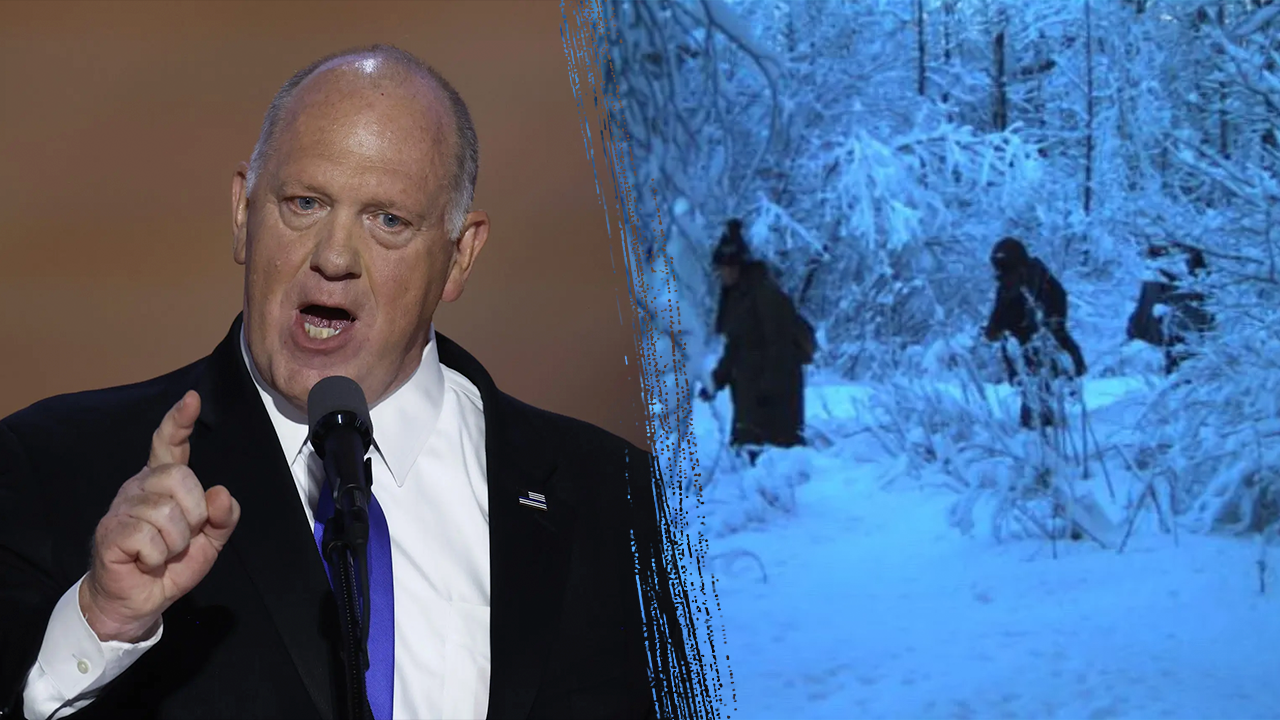How Schools Are Responding to Trump’s D.E.I. Orders

Students at North Carolina’s public universities can no longer be required to take classes related to diversity, equity and inclusion to graduate.
The University of Akron, citing changing state and federal guidance, will no longer host its “Rethinking Race” forum that it had held annually for more than two decades.
The University of Colorado took down its main D.E.I. webpage, and posted a new page for an Office of Collaboration.
Around the country, dozens of universities and colleges have begun to scrub websites and change programming in response to President Trump’s widening crusade against diversity and inclusion. But much remains unclear about the legality and reach of President Trump’s new orders.
So some schools are simply watching and waiting.
“It’s meant to create chaos in higher education, and in that it’s been successful,” said Todd Wolfson, the president of the American Association of University Professors, of the attempts by President Trump to end D.E.I. activity on campuses. “The responses are all over the map.”
The president has signed several executive orders seeking to ban diversity practices across the federal government, educational institutions and private companies. The orders are sweeping in their language and scope. One demands that agencies and schools terminate D.E.I. offices, positions, action plans, grants and contracts. Another bans “gender ideology and discriminatory equity ideology” and threatens to withhold federal funding from schools that do not promote “patriotic” education.
Already, some orders have been challenged in court, and it remains to be seen how broadly the government will pursue institutions that it believes are using “illegal” preferences that “discriminate, exclude, or divide individuals based on race or sex.” An education secretary has not yet been confirmed; Linda McMahon, the nominee, will appear before a Senate committee on Thursday.
Administrators of K-12 institutions — which are more financially insulated — are making their own calculations. But in higher education, hundreds of millions in funding are on the line. University administrators are debating whether to freeze existing programs, stand on principle and resist, or try to fly below the radar while they see if the executive orders hold up in the courts.
At Princeton, for example, the president, Christopher Eisgruber, urged the community to “Keep Calm and Carry On,” until the legal status of the executive orders becomes more clear.
Meanwhile its athletics department posted a modified transgender athlete participation policy to comply with new N.C.A.A. rules, which changed because of President Trump’s order barring transgender athletes from women’s sports. Harvard and the University of Pennsylvania also removed references to transgender inclusion from their athletics websites.
At the University of Akron, administrators said that declining attendance and enthusiasm were additional reasons the school had stopped funding its Rethinking Race forum, which has been held every year since 1997. But programs for Black history month would continue, they said.
The American Association of University Professors is one of several organizations that has sued in federal court in an effort to block two executive orders related to diversity and inclusion.
The lawsuit charges that the executive orders violate the due process clause of the Constitution by failing to define terms like “D.E.I.,” “equity” and “illegal D.E.I.A.” The orders, it argues, also violate free speech and the separation of powers protections.
Still, the ambiguity in what diversity, equity and inclusion means has led some colleges to take a broad view as they seek to comply.
The University of North Carolina’s campus in Asheville, for example, had designated certain courses as “diversity intensive,” which meant they could be used to meet a diversity graduation requirement. On the list of classes that met the requirement were Appalachian Literature, Global Business, Developmental Psychology and Cultural Anthropology. They will still be offered, but will no longer be part of a requirement, said Brian Hart, a spokesman for the university.
Andy Wallace, a spokesman for the North Carolina system, said the system was assessing federal policy changes to ensure it would still receive funding. “This does not affect any course content,” he said. “It suspends any requirements for D.E.I.-focused courses as a condition of graduation.”
Beth Moracco, chair of the faculty at the University of North Carolina, Chapel Hill, said the university’s actions were worrisome.
“My concern is that these types of directives and memos will have a chilling effect in terms of discussions in the classroom and faculty developing new courses,” she said, “even if there’s not a direct effect of eliminating courses at this time.”
At Michigan State, administrators canceled a Lunar New Year lunch, and then apologized for the overreaction and rescheduled it, according to emails from the school posted online by Bridge Michigan, a nonprofit news source. A university spokeswoman said that its College of Communication Arts and Sciences canceled the event without consulting the broader university; about 70 people showed up for the rescheduled event on Tuesday.
Mr. Trump’s orders follow a yearslong push by state level Republicans to roll back diversity programs. Twelve states, including Texas and Florida, have passed laws targeting D.E.I., and legislation has been considered or introduced in more than a dozen other states.
More than 240 colleges in 36 states have eliminated some aspects of their programming, including diversity offices or race-based affinity groups, according to the Chronicle of Higher Education, which has been tracking changes in diversity policies since January 2023.
Most of those moves happened before Mr. Trump’s recent order, however, and it remains unclear how the flurry of action during his first weeks in office will affect schools over the long term, especially in K-12 districts.
So far, few public schools seem to be rushing to change their practices. School districts are less reliant on federal funds than universities are, with 90 percent of their funding coming from state and local taxes. And the nation’s 13,000 districts have always had broad autonomy to set their own curriculum and teaching policies.
The Trump administration has launched investigations into at least two K-12 districts — Denver Public Schools and the Ithaca City School District in New York. Denver is under investigation for transforming one girl’s bathroom at a high school into a nonbinary bathroom, according to the Education Department. Ithaca is under investigation for hosting a series of conferences for students of color, some of which may not have been open for white students to attend, according to the Equal Protection Project, an advocacy group that filed a federal civil rights complaint against the school system.
Yet Denver is still directing educators to a detailed “L.G.B.T.Q.+ Tool Kit” that lays out policies for affirming students who are questioning their gender identities, giving those students access to the bathrooms of their choice and helping them change their names in the district’s computer systems.
And in Ithaca, despite scrutiny on the district’s practices around race, the school system’s website continues to feature a page touting an “anti-marginalization” curriculum. It is intended to aid students “in their development of anti-racist understandings and practices” — language that could run afoul of the president’s executive orders.
Ithaca City Schools did not respond to interview requests.
In a written statement, a spokesman for Denver’s public schools said that before making any “final decisions” about policy changes, the district was awaiting further federal guidance. He added that the district “remains committed to our values including providing a safe and inclusive learning environment to all students.”
Some Democratic education leaders have bluntly stated that they did not intend to change their practices in response to Mr. Trump. When it comes to issues of gender and sexual orientation, “California law is unaffected by recent changes to federal policy,” said Tony Thurmond, the state schools superintendent.
In New York, the state education department released a statement calling Mr. Trump’s actions “ineffective” and “antithetical” to the history of federal education policy, which has traditionally sought to protect racial minorities, sexual minorities, students with disabilities and other groups.
“We denounce the intolerant rhetoric of these orders,” the state agency said. “Our children cannot thrive in an environment of chaos; they need steady and stable leadership that we will endeavor to provide.”
Perhaps the biggest impact in education has occurred in the schools that the federal government controls more directly: those for children who live on military bases and the military’s officer academies.
The defense secretary, Pete Hegseth, has declared that official celebrations of events like Black History Month are no longer welcome. The defense department’s K-12 schools have ended some clubs, options for children to use the bathrooms that align with their gender identities and are combing shelves for books with themes related to diversity, according to reporting by Stars and Stripes.
The United States Military Academy at West Point disbanded 12 student affinity groups while investigating whether they complied with the administration’s D.E.I. directives.
Paulette Granberry Russell, president and chief executive of the National Association of Diversity Officers in Higher Education, which is also suing the Trump administration to overturn the D.E.I. orders, said the new policies would most likely have a broad chilling effect, despite their ambiguity.
“And that chilling effect is, I think, extending whether you are in a red state, a blue state, in anything in between,” she said. “No institution wants to become a target.”



